My Top Tips on How and When to Take Bee Pollen Safely and Effectively

by Angela Ysseldyk, Nutritionist and Beekeeper's Daughter
Before I get into how to take bee pollen, you need to know first off that it is typically available in three forms - granules, capsules and chewable tablets . The best way to take it and how much to take will depend on your goals and why you're taking it along with of course your budget.
It is very important that you follow these recommended guidelines when introducing bee pollen into your diet. If you are sensitive to the pollens in the supplement that you are taking, you could potentially have a reaction to it (although this is rare).
How to Take Bee Pollen Granules the First Time
I've been taking it by the tablespoon daily since I was a child, so I know I can tolerate it very well and I won't be having an adverse reaction.
But, if you're new to taking this superfood, I suggest you follow these guidelines to determine your sensitivity to it. Although bee pollen is not a drug, it is possible you could be sensitive to it so its best that you're cautious the first time you take it.
Should I Pre-Soak My Bee Pollen?
"I'm very interested in adding bee pollen to my diet, but I have read that most humans need to soak bee pollen for 10-12 hours to increase assimilation from 7-12% to +-90% after soaking the pollen (to crack the shell), according to the research of a certain Dr. Cherbuliez.
When the topic of how to take bee pollen comes up, I often get asked about pre-soaking. Dr. Cherbuliez is the Vice President of the American Apitherapy Society and his view about soaking bee pollen for optimum digestion is widely published throughout the internet. Dr. Cherbuliez is actually a psychiatrist who became interested in bee keeping and apitherapy and some sites claim that he has done research on bee pollen absorbtion. I have yet to be able to find or read the actual research and have no idea how or when he was able to measure the absorbtion rates of bee pollen.
Because of this and a complete lack of other research supporting Dr. Cherbuliez's claims, I am not totally convinced that soaking pollen for 12 hours is necessary for everyone. I do find that it helps those who have impaired digestion of some kind (those who suffer from Irritable Bowel, Crohns, Colitis, Gas & Bloating etc). It certainly won't hurt the bee pollen or you. On the other hand, it is well known that pre-soaking certain nuts and seeds helps those who have a hard time digesting them. So even though pollen is not a nut, it is food for thought. I personally believe that if you chew your raw pollen, the human digestive tract is quite capable of breaking down the outer shell of the pollen granule and releasing the valuable nutrients into your G.I. tract.
How to Take Bee Pollen if You Are Sensitive to Pollens
Signs and symptoms that you may be sensitive to pollen include an itchy throat, runny nose, headache, sweating, tearing eyes or other allergic symptoms. If you experience one or all of these symptoms, don't worry.
There are some experts out there who feel that with continued exposure, you'll develop a tolerance or re-balancing of your immune system and over time will be able to tolerate pollen very well. As always, if you feel weird or unsure, check with your doctor first.
In fact, my husband experienced this exact phenomenon first hand. When he began taking bee pollen, he would develop within seconds an itchy throat and mild allergy symptoms. We simply cut back his dose and slowly upped it until he experienced none of these symptoms at all. Now, he takes several table spoons a day of pollen!
If you've purchased capsules you may be wondering how in the world you're going to be able to test your tolerance. Well, there is a way. Many bee pollen supplements come in a capsule form.
These capsules are usually made of gelatin and simply twist open. Dump a small amount of the pollen into juice, water or right into your mouth. Follow the procedure I talked about above.
If you've managed to find a fully sealed gelatin capsule (these are rare), you'll simply have to cut it open with scissors or a knife to test your tolerance. Whatever you do, I recommend you test your tolerance if you are new to taking pollen. Allergic reactions are no fun!
If you've purchased tablets and want to test your sensitivity to pollen, simply cut a small piece of the tablet away and use that. All tablets are held together using binders. That is what keeps them from falling apart in the bottle. Don't worry, a sharp knife will be sufficient in separating the tablet.
When to Take Bee Pollen
One of the most common questions I get asked is when to take bee pollen granules. Bee pollen is first and foremost a food and it should be looked upon as that. It is not a drug so the concerns I hear about taking it with supplements or medications are mostly unfounded. Bee pollen can be eaten or consumed literally at any time of the day or night. Be careful however as some find it gives them a jolt of energy (likely due to the high b vitamin content).
Bee pollen can be mixed in literally anything. I mix it in cereal, granola, yogurt and even apple sauce. My favorite way to ingest bee pollen is to blend it into my morning protein smoothie with fruit, a greens drink and my Essential Fatty Acid blend.
Some people prefer to simply chew their bee pollen and swallow. While at first it has a rather different taste for most, it really does grow on you and is quite palatable. In my opinion, this is the best way to ingest your pollen as your digestive system has a chance to really start breaking down the outer pollen shell and releasing the valuable nutrients inside.
Ultimately, it is up to you how you consume your pollen. It is extremely versatile and can be chewed, blended, mixed or simply swallowed. The most important thing is to make it a part of your daily nutrition so find out what works best for you and stick to it!
How to Take Bee Pollen: A Word of Caution
One word of caution - I keep my bee pollen granules in the freezer year round and we recommend you do the same to prevent any moisture from getting in. You don't want mold. At the very minimum, keep your pollen in the fridge. This goes for granules only. Capsules and tablets will be sealed off from any oxygen so they are fine at room temperature.
Learn the Benefits of Bee Pollen:
Recommended Bee Pollen Products
There are many bee pollen products on the market, many of which are very poor quality with very suspect ingredients from suspect countries. I regularly get solicited by companies from all over the world selling cheap, low grade bee pollen that is not fit for human consumption. I use and recommend Dutchman's Gold Bee Pollen. You can find Dutchman's Gold bee pollen products here.
|
|
|


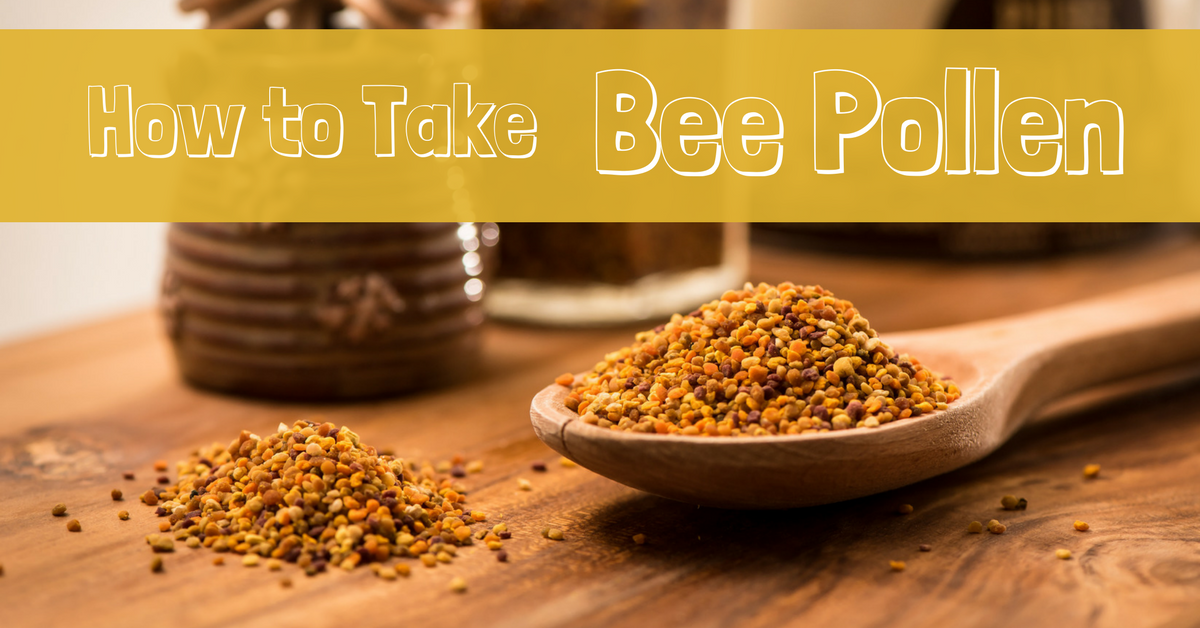
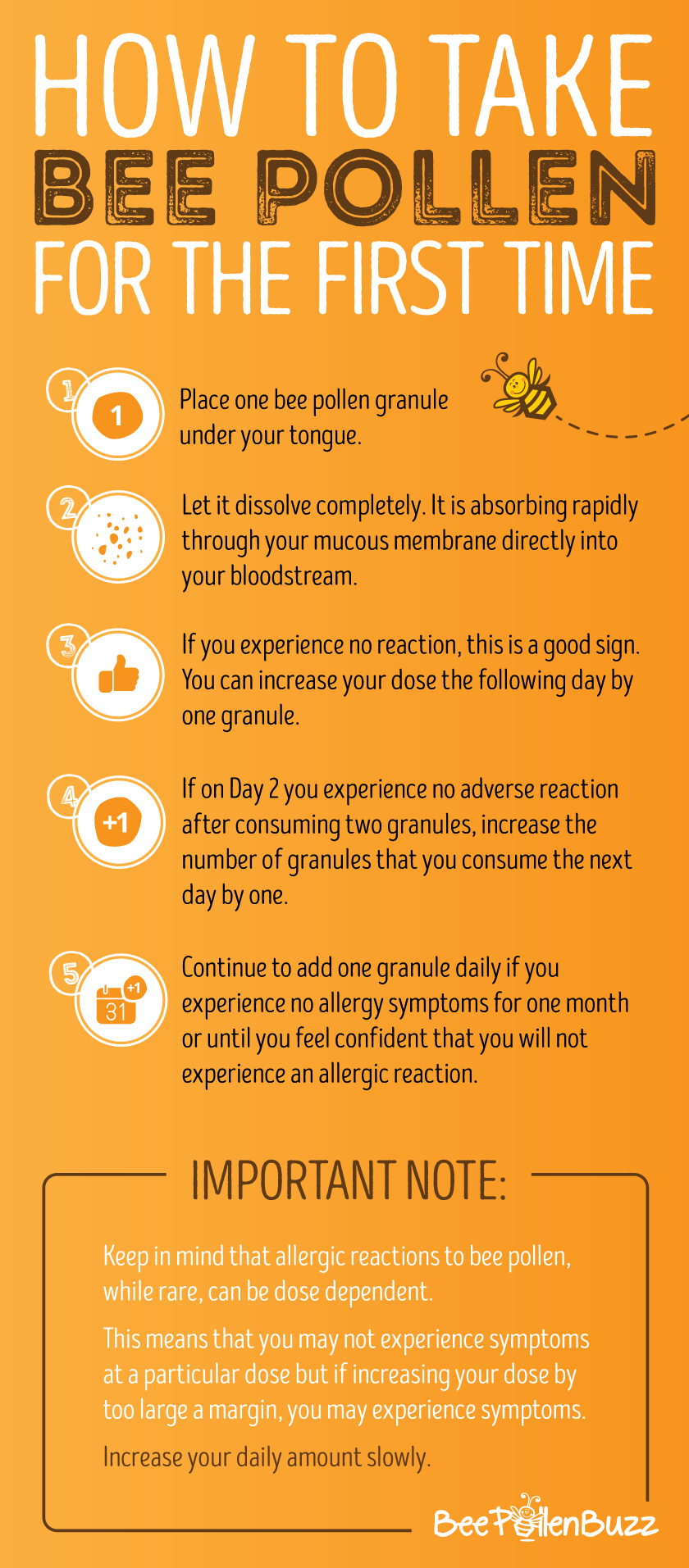
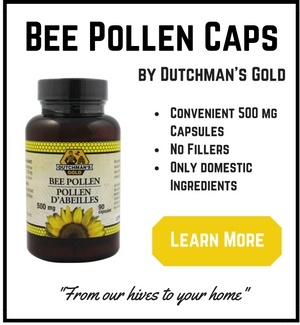
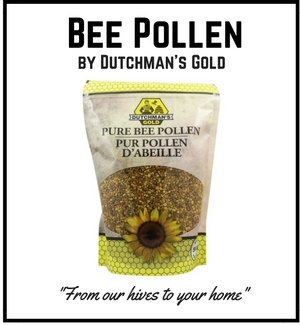
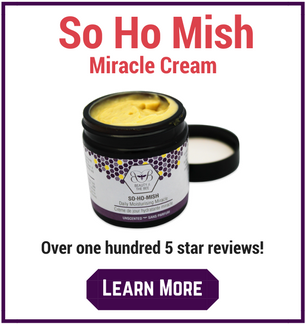
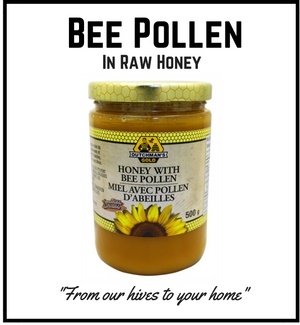






New! Comments
Do you have something to say about what you just read! Leave me a comment in the box below. I'd love to hear from you!